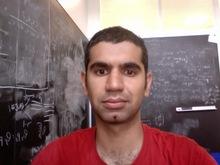Event
Condensed and Living Matter Seminar: Randomness, Complexity, and the Biological Frontier
Pankaj Mehta (University of Boston)

The towering successes of twentieth century theoretical physics were marked by two guiding principles: symmetry and energy functionals (reflecting equilibrium dynamics). Yet how we can exploit these principles to develop a theory of living systems is unclear since the biological world is composed of heterogeneous, interacting components operating out of equilibrium. In this talk, I will argue that one possible strategy for taming biological complexity is to embrace the idea that many biological behaviors we observe are “typical” and can be modeled using random systems that respect biologically-inspired constraints. I will focus on showing how this approach can be used to make close connection with experiments by presenting three vignettes focusing on: (i) theory-inspired techniques for visualizing single-cell transcriptomics data for cellular identity, (ii) understanding how the interplay between cross-feeding and competition shapes microbial ecosystems and (iii) the emergence of chaos in the ecosystems with non-reciprocal interactions.
